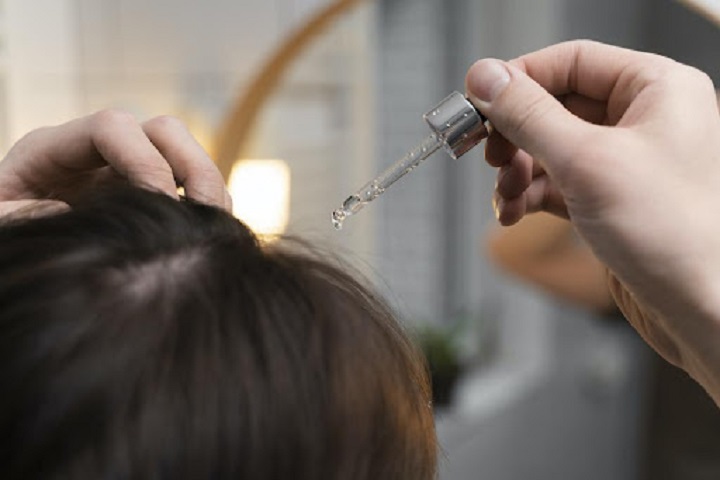Are you bothered by whether or not hair transplantation on scars is possible? If yes, then continue reading this post.
In this post, we shall discuss everything you need to know about hair transplants on scars.
Here we go…
Scar tissue hair transplantation is possible. However, a hair transplant on a scar is done differently than a normal hair transplant since scar skin and tissue are different.
Let’s see how hair transplants on scars work.
Hair Transplants on Scar
Well, to understand this is in-depth, you need to understand that scar tissue has no hair follicles, so hair does not naturally grow there. Scars on damaged skin prevent hair follicles from re-growing. This is because scars are formed of collagen, a thick fibrous substance that grows to protect the skin.
Scar tissue isn’t like regular skin; therefore, hair transplants into existing follicles won’t work. A surgeon will graft hairs still in their follicles into the scar to transplant hair. When hair contacts blood vessels, it takes root and grows anew.
After the wound heals and the follicles are fully grafted into the skin, they normally start sprouting hair again.
Also, hair transplants on scar tissue require regular monitoring to ensure success. Due to the initial lack of blood flow, you may need to undergo many surgeries. And in the case scar tissues thicken, your surgeon may recommend corticosteroid injections to flatten the scar surface and make it look more natural.
Procedures for Hair Transplant on Scars
Your surgeon may propose one of two types of hair transplants to fill in scar tissue, namely Follicular Unit Extraction (FUE) and Follicular Unit Transplantation (FUT).
Here’s how each step goes.
FUE
FUE stands for “Follicular Unit Extraction.” It is a procedure in which your surgeon removes individual hair follicles from the back of your head, separates them under a high-powered microscope, and then transplants them onto the region that has to be covered.
During this procedure, numbing lotion or local anesthetic is applied to both the donor and recipient sites to ensure that they are both comfortable. When transplanting hair on scar tissues, your surgeon will follow the below-mentioned procedure:
- Surgeons harvest follicles from the skin, creating microscopic marks in this procedure.
- For that, your surgeon will first shave your head or a scar.
- Then, he will make holes in your scar tissue and implant the follicles.
- Finally, they would wrap the wound with cotton and gauze.
FUT
Another approach for hair transplant on scars include Follicular Unit Transplantation, often known as FUT. It entails the removal of long, thin tissue strips from the back of your head.
When it comes to hair transplant on scars, your surgeon will follow different Follicular Unit Transplantation (FUT) approaches, which goes like this:
- Your surgeon will take a 6- to 10-inch piece of skin from your scalp or another area nearby (depending on the size of your scar).
- Then, divide the skin into grafts, some of which contain only one hair and its follicle.
- Then, your surgeon will make holes in your scar tissue to insert follicles.
- After which, your surgeon will insert the grafts into the scar.
- Once the procedure is complete, they will finish the surgery by wrapping it with cotton and gauze.
The FUT procedure is faster than FUE and enables the transplantation of thousands of grafts in a single session, as opposed to the FUE procedure. This makes it an excellent candidate for scalp and beard transplantation.
How much time does the surgery take in all?
More often than not, hair transplants on scars take around 2 hours. Usually, you are allowed to go home the same day. And if the transplant is massive, you may require numerous appointments over several days.
Recovery
Both FUT and FUE might take several hours to days to perform. This is partly determined by the surgeon’s workload, your baldness, and other reasons.
If the area is swollen, your surgeon may give you immediate medication to reduce the swelling. You may have pain or soreness at the transplant site and the area where hair was removed. If so, your surgeon may recommend some painkillers and antibiotics to get rid of pain and other infections.
Issues Post Hair Transplant on Scars
Here are some of the common issues that you may experience post hair transplant on scars:
- Swelling
- Infection
- Pain
- Discharge of pus or fluid
- Crust formation
- Itchy scalp
- Irritation or agony
- Tingling in the area
If you notice any of these symptoms, contact your surgeon immediately.
Post-Surgery Precautions
After the surgery, your surgeon will ask you to visit after a few days for the removal of the bandages. If needed, your surgeon may ask you to visit several times until you’re fully recovered.
Your surgeon may additionally advise you to undertake the following to aid your post-transplant recovery:
- You’ll be advised not to wash or soak the transplant region for a few days after surgery.
- Take some time off work or other activities so that the hair transplant on the scar region can heal.
- No lotion, ointment, or other material should be applied unless your surgeon says so.
- If you had hair transplanted onto your scalp, don’t comb or brush it for 21 days.
- During the healing process, keep the region open or wear minimal clothing.
- Avoid exercise or any sport for a week or more to avoid injury or irritation.
How long does it take for a scar region to regrow hair?
Hair growth in a scar takes time. Usually, it takes around six months to a year and a half to have the full growth on the scar. The outcome may vary from person to person depending on their lifestyle and post-surgery care.
Wrapping it up…
This is all about hair transplantation on scars, as you can see. Hopefully, it will be of use to you in getting started.
If you want to achieve the results you want that will last a long time, you must always choose a renowned hair transplant in Delhi for your scar hair transplant, such as DHI, to do the procedure. An experienced surgeon in a reputable hair transplant clinic can provide the most successful hair transplantation results.
DHI India is one of the most reputable hair transplant clinics in India. Our clientele comprises many well-known persons, including celebrities and politicians. We have a team of skilled surgeons that are committed to helping their clients achieve their goals in the most efficient and safest manner possible.






